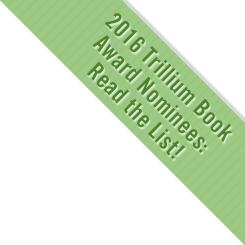A gun dog is an uncontrolled creature purportedly under our control. In his award-winning first book of poetry, Gun Dogs (House of Anansi Press), James Langer's poems strain forward, each line tense from controlling the uncontrollable, eventually attaining wisdom and measured equanimity. James will be reading this week at Bryan Prince Bookseller in Hamilton on Thursday, November 22, so if you're in the area, attend if you can! Visit our Events page for details.
In today's Poets in Profile series, James talks to Open Book about how rabbit hunting contributed to his becoming a poet, how television can be a source of poetry and the times when some poems need to be abandoned.
Open Book:
Can you describe an experience that you believe contributed to your becoming a poet?
James Langer:
When I was about eight years old, I started rabbit hunting with my father. Actually, they were snowshoe hares. He would set the snares, and we’d check them every couple of days. I followed him into the woods as the designated axe holder. That was my job. Then one evening we found that one of the rabbits we’d caught was still alive in the slip. I won’t describe it. Let’s just say the animal was seriously damaged. My father turned to me for the axe, but somehow I’d forgotten it, left it behind, or dropped it. I can’t remember. He lifted the animal by the back paws and swung its head against a tree as if slapping a wet towel against a rock. Here was an essentially non-violent man performing a necessarily violent act with what seemed like indifference. Of course, it wasn’t. I think this was my first encounter with real hurt troubled by complexity and responsibility.
OB:
What is the first poem you remember being affected by?
JL:
“Hey Diddle Diddle” was a problem for me as a child. It was years before I realized the little dog was right. Then there was “Birches,” by Robert Frost. I was in high school. It was the first poem that ever drew me in and the first poem I’d ever honestly read.
OB:
What one poem — from any time period — do you wish you had been the one to write?
JL:
There isn’t a single poem by anyone else that I wish I had written. That would be irrational thinking and would ignore the fact that all writing is rewriting anyway. I’d like to rewrite Shakespeare’s “Sonnet 73,” but not as a sonnet. Then there’s this poem in my head that I hope to write and right. Does the distant future count?
OB:
What has been your most unlikely source of inspiration?
JL:
Television. Aptly named the idiot box. Television offers innumerable bones to pick. 30 Rock being the one glorious, too-short-lived exception.
OB:
What do you do with a poem that just isn't working?
JL:
Some I abandon, wishing I’d never bothered in the first place. Some I pound into submission. There are poems in Gun Dogs that were rewritten, top to bottom, ten or twelve times. But that just means I abandoned some poems nine or eleven times.
OB:
What was the last book of poetry you read that really impressed you?
JL:
Ken Babstock’s Methodist Hatchet.
OB:
What is the best thing about being a poet…and what is the worst?
JL:
I like those moments when I’m alone, anonymous, and alive to the problems I create, and try to solve, with words. But those moments seem only to occur in pockets for me, when I’m actually writing or preparing to write. The idea of “being a poet” suggests some kind of constant state. So the worst thing is that the word “poet” carries certain expectations and might be improperly defined. Not one who writes poetry, but one in the act of writing poetry.
James Langer's first book, Gun Dogs (Anansi, 2009), won the Gerald Lampert Award. He edits poetry for Goose Lane's Icehouse imprint and is the editor at Breakwater Books. Raised in Trinity Bay, NL, he now lives in St. John's.
For more information about Gun Dogs please visit the House of Anansi website.
Buy this book at your local independent bookstore or online at Chapters/Indigo or Amazon.


Post new comment